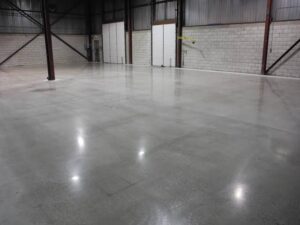Transform Your Basement with Epoxy Flooring in Fairfax, VA
In Fairfax, VA, where homeowners value both functionality and style in their living spaces, epoxy basement floors are becoming the go-to solution for transforming underutilized areas into vibrant, durable, and versatile spaces. Whether you’re looking to create a home gym, a family recreation area, or simply want to enhance the value of your home, an epoxy floor offers a perfect blend of beauty and resilience.
Why Choose Epoxy for Your Basement Floor?
Epoxy flooring is a seamless, high-performance surface that turns ordinary concrete into a robust and stunning floor. Ideal for basements, this coating system not only elevates the appearance of your floor but also provides a moisture-resistant seal that protects against common basement issues like dampness and mildew.
1. Durability and Resilience
Epoxy floors are renowned for their durability and long lifespan. These floors are resistant to stains, cracks, and scratches, making them perfect for high-traffic areas such as basements. Whether your basement serves as a laundry room, workshop, or entertainment area, epoxy flooring stands up to heavy use without compromising on appearance.
2. Moisture and Damage Resistance
Basements in Fairfax, VA often face moisture challenges due to the region’s climate. Epoxy flooring provides a non-porous surface that seals the underlying concrete and prevents water infiltration. This resistance to moisture helps prevent the growth of mold and mildew, ensuring a healthier environment for your family.
3. Easy Maintenance
One of the most appealing aspects of epoxy floors is their ease of maintenance. Unlike carpet or wood, epoxy does not require extensive upkeep. Simple sweeping and occasional mopping with mild detergent are all it takes to keep your floor looking new. This low-maintenance feature is especially beneficial in basements, where cleaning can often be overlooked.
4. Aesthetic Flexibility
Epoxy flooring offers endless possibilities in terms of design. Available in a variety of colors and patterns, it can mimic the look of polished stone, marble, or even intricate tiles. For a more personalized touch, additives such as color flakes or metallic pigments can be incorporated into the epoxy to create a unique, decorative finish.
Choosing the Right Epoxy Flooring Contractor in Fairfax, VA
When it comes to installing an epoxy basement floor, selecting the right contractor is crucial. The quality of the installation affects both the appearance and longevity of the floor. In Fairfax, VA, homeowners should look for experienced professionals who specialize in epoxy flooring solutions.
A reputable contractor will begin with a thorough assessment of your existing floor to identify any issues such as cracks or moisture problems. Proper surface preparation, including cleaning and leveling the concrete, is essential for ensuring that the epoxy adheres correctly and performs as expected.
 The Installation Process
The Installation Process
The process of installing an epoxy floor typically involves several key steps:
- Surface Preparation: This includes cleaning the concrete slab, repairing any damages, and ensuring the floor is level and free of moisture.
- Primer Application: A primer coat is applied to help the epoxy adhere securely to the surface.
- Epoxy Coating: The epoxy mixture is then applied. Depending on the desired finish, several layers might be applied.
- Sealing: The final step is to seal the epoxy to enhance its durability and give it a glossy or matte finish, depending on your preference.
Each of these steps requires precision and expertise to ensure the finished floor is flawless and functional.
Customization Options for Epoxy Basement Floors
Epoxy floors are not only practical but also highly customizable. For homes in Fairfax, VA, adding a personal touch to your basement can make the space feel more integrated with the rest of your home. Whether you opt for a bright, bold color to inspire creativity in a home office or a subtle, elegant pattern that complements your home gym, epoxy can be tailored to suit any design theme.
Long-term Benefits of Epoxy Basement Floors
Investing in an epoxy basement floor can bring significant long-term benefits. Not only does it enhance the usability and appearance of your basement, but it also adds to the overall value of your home. A well-installed epoxy floor can last for decades with minimal maintenance, making it a cost-effective solution for any homeowner.
Ready to Transform Your Basement?
If you’re considering an epoxy floor for your basement in Fairfax, VA, now is the time to take action. Transform your underused basement into a beautiful and functional space that adds value to your home and enhances your living experience. Contact The Concrete Etc. Today!
For homeowners in Fairfax, VA looking to upgrade their basement flooring, contacting a local, trusted professional like those found at your trusted flooring company ensures that you receive high-quality service and an end result that meets your expectations. Choose to enhance your home with a durable, stylish, and functional epoxy basement floor today!


 The Installation Process
The Installation Process